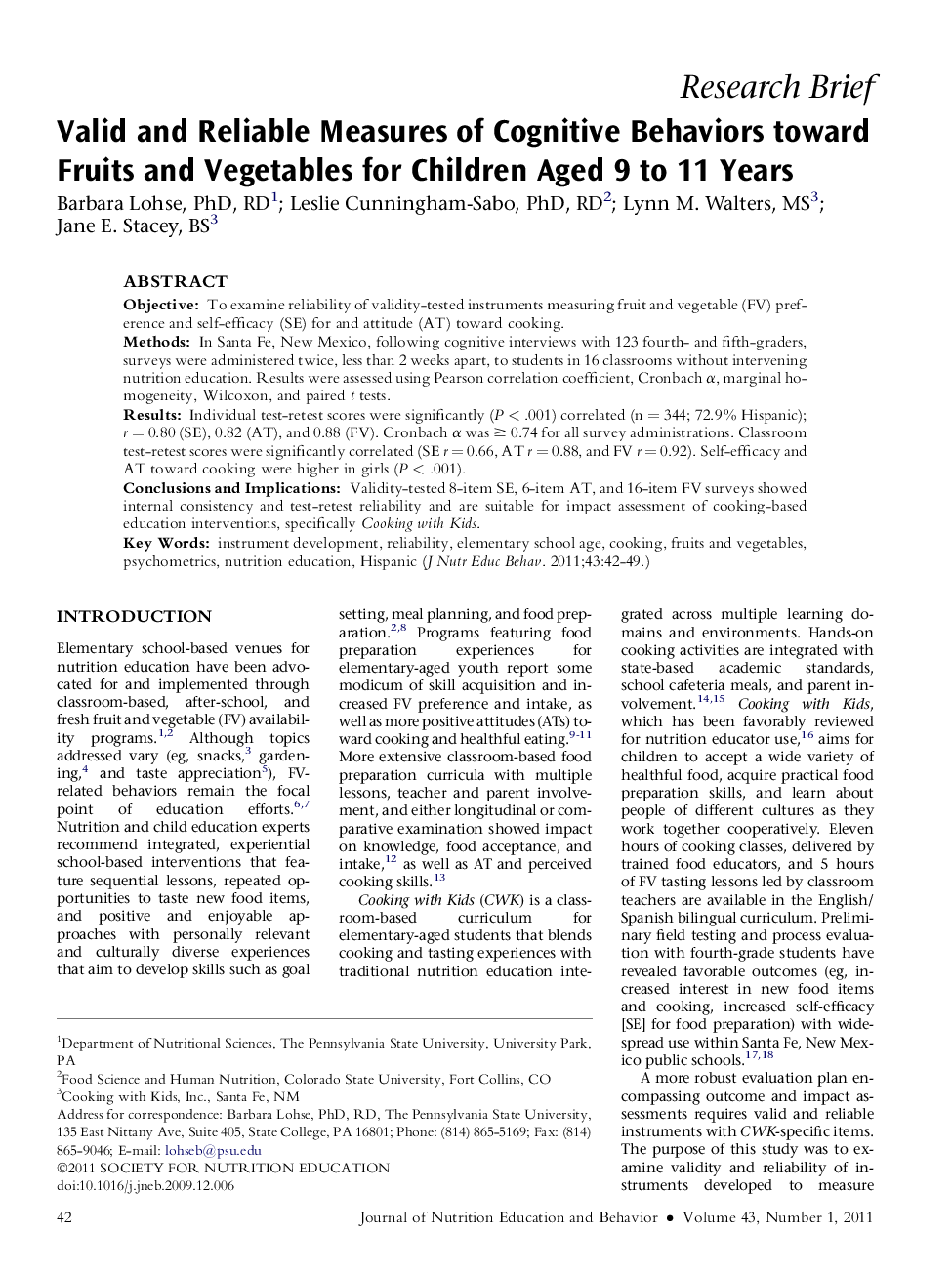| Article ID | Journal | Published Year | Pages | File Type |
|---|---|---|---|---|
| 362939 | Journal of Nutrition Education and Behavior | 2011 | 8 Pages |
ObjectiveTo examine reliability of validity-tested instruments measuring fruit and vegetable (FV) preference and self-efficacy (SE) for and attitude (AT) toward cooking.MethodsIn Santa Fe, New Mexico, following cognitive interviews with 123 fourth- and fifth-graders, surveys were administered twice, less than 2 weeks apart, to students in 16 classrooms without intervening nutrition education. Results were assessed using Pearson correlation coefficient, Cronbach α, marginal homogeneity, Wilcoxon, and paired t tests.ResultsIndividual test-retest scores were significantly (P < .001) correlated (n = 344; 72.9% Hispanic); r = 0.80 (SE), 0.82 (AT), and 0.88 (FV). Cronbach α was ≥ 0.74 for all survey administrations. Classroom test-retest scores were significantly correlated (SE r = 0.66, AT r = 0.88, and FV r = 0.92). Self-efficacy and AT toward cooking were higher in girls (P < .001).Conclusions and ImplicationsValidity-tested 8-item SE, 6-item AT, and 16-item FV surveys showed internal consistency and test-retest reliability and are suitable for impact assessment of cooking-based education interventions, specifically Cooking with Kids.
